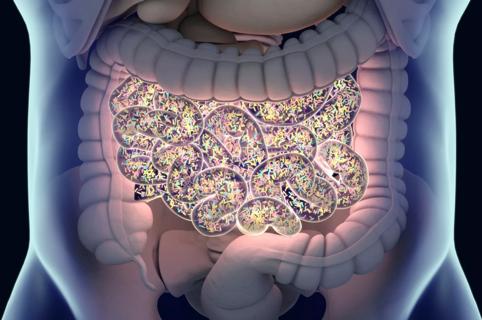Bruce Trapp, PhD, reflects on decades of basic and translational research
Multiple sclerosis (MS) research at Cleveland Clinic’s Lerner Research Institute doesn’t go from bench to bedside. It goes from bedside to bench to bedside, thanks to Bruce Trapp, PhD, Chair of the Department of Neurosciences.
Advertisement
Cleveland Clinic is a non-profit academic medical center. Advertising on our site helps support our mission. We do not endorse non-Cleveland Clinic products or services. Policy
The best way to study MS is to study the brains and spinal cords of patients with the disease, says Dr. Trapp. That’s what helped him and his team publish today’s No. 1 most cited paper in MS research, a 1998 New England Journal of Medicine article that attributed neurological impairment in MS to loss of axons. More recently, the team published in Lancet Neurology some of the first evidence that neurodegeneration and demyelination can be independent events in the MS brain, demonstrating that a subgroup of MS patients can have neuronal loss without demyelination.
In the newest episode of Cleveland Clinic’s Neuro Pathways podcast, Dr. Trapp explains the collaboration between researchers and clinicians that has made these landmark revelations possible. The brief audio interview touches on:
Click the player below to listen to the podcast now, or read on for a short edited excerpt. Check out more Neuro Pathways episodes at clevelandclinic.org/neuropodcast or wherever you get your podcasts.
Podcast content: This podcast is available to listen to online.
Listen to podcast online (https://www.buzzsprout.com/2243576/13534575)
Dr. Trapp: I was trained as a myelin biologist and was interested in the cell biology of myelin. I did a lot of work on inherited diseases of the peripheral nervous system, but MS is a different disease. We don’t know what causes it. We know that MS has an immune component that’s very important. We have 17 or 18 FDA-approved therapies now to reduce inflammation and demyelination, but they don’t stop the disease. There are so many things about it that we don’t understand. Of course, gray matter pathology is one of them.
Advertisement
We and others have described the demyelination of the gray matter, the cerebral cortex, as being very important. Unfortunately, we do not see it in routine imaging scans. Fields are making progress in that, so I’m hopeful that they’ll see something soon, but we have no way of judging what that cortical lesion load is in the MS patient.
And now there’s evidence that neurons may degenerate without demyelination. How do you have a marker for that? So, we keep learning. I think we have to keep studying the MS brain, and we have to model aspects of it so we may be able to learn pathways. We’re now starting to see drugs coming into phase 1 testing that either will be neuroprotective or promote repair, which are two new targets for our field.
Advertisement
Advertisement

First full characterization of kidney microbiome unlocks potential to prevent kidney stones

Researchers identify potential path to retaining chemo sensitivity

Large-scale joint study links elevated TMAO blood levels and chronic kidney disease risk over time

Investigators are developing a deep learning model to predict health outcomes in ICUs.

Preclinical work promises large-scale data with minimal bias to inform development of clinical tests

Cleveland Clinic researchers pursue answers on basic science and clinical fronts

Study suggests sex-specific pathways show potential for sex-specific therapeutic approaches

Cleveland Clinic launches Quantum Innovation Catalyzer Program to help start-up companies access advanced research technology